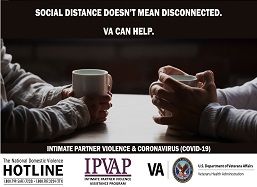Domestic Violence Awareness Month

 Tough. Strong. Self-reliant. These words capture what immediately comes to mind when describing Veterans, military personnel, and the people who support them. We also describe people experiencing domestic violence with these terms, and too often we encounter a person who identifies as both a Veteran and a victim of domestic violence.
Tough. Strong. Self-reliant. These words capture what immediately comes to mind when describing Veterans, military personnel, and the people who support them. We also describe people experiencing domestic violence with these terms, and too often we encounter a person who identifies as both a Veteran and a victim of domestic violence.
Events in the past six months have created a nearly 20% jump in Veteran homelessness rates throughout Minnesota, and a growing number of these Veterans are women. “We see the same barriers over and over,” comments MACV case manager Kimberly Dotstry. What sets this period apart is the additional challenge posed by accessing resources and safe shelter while complying with public health and safety protocol.
Shifting demographics in the U.S. military compels MACV to continually assess our approach and its effectiveness for women. Female Veterans often face additional barriers to stability compared to their male counterparts, such as primary responsibility caring for minor children with smaller incomes than men. Mental illness, trauma experienced either inside or outside the line of duty, substance abuse, and volatile behavior contribute to the challenge women face when seeking services from mainstream military service organizations. Attitudes in the armed forces which emphasize self-reliance and a soldier’s “toughness,” while beneficial and embraced in military culture, can counteract Veterans’ willingness to seek help.
Women often become homeless when escaping domestic violence; Veterans are no exception to this reality. About a third of women Veterans experience intimate partner violence at some point in their lives, according to the Department of Veterans Affairs. The Defense Department’s most recent report on sexual assault in the military showed a 38-percent increase in assaults against women service members since 2016. During times of crisis like the COVID-19 pandemic, domestic violence tends to increase as couples face unprecedented stress and instability.
According to MACV Case Manager Kimberly Dotstry, “When a woman is fleeing domestic violence, she is automatically homeless in that moment.” Women who depend on their partner for financial stability are particularly disadvantaged when fleeing an abusive relationship. Establishing the trust necessary to learn about these painful experiences and their impact on the Veteran often takes months of careful work from skilled service providers.
October is domestic violence awareness month. To learn more about this issue and how the VA can help, please visit their website.